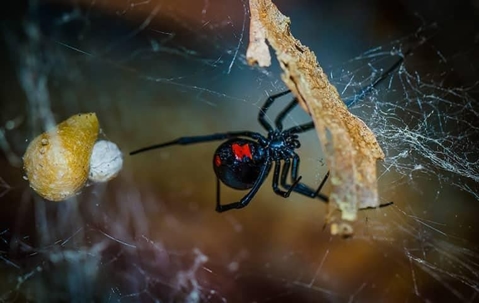Spiders! That word alone may send a shiver running up your spine. While it is true that these creatures often get an unnecessarily bad rap, there may be some merit to the widespread aversion to spiders. Most spiders do keep other pests at bay and play an essential role in the ecosystem. However, a few spider species prove to be very harmful to humans and other mammals. It is important to know how to spot dangerous spiders and how to keep them out of your Dallas home.
Types Of Spiders You May Find In Your Dallas Home
There are many spider species in the Dallas area, from jumping spiders to orb-weavers to garden spiders. Although this may be of little solace to arachnophobes, these spiders will do humans no physical harm. There are two troublemakers in the Dallas area to keep an eye out for black widow spiders and brown recluse spiders.
Black widows are the most venomous spider in North America. In fact, their venom is 15 times stronger than that of a rattlesnake. Once bitten, the black widow venom attacks the victim’s central nervous system and causes widespread pain. Luckily, anti-venom is available at most hospitals and is often administered to elderly or very young victims. They are the most at risk of severe complications related to black widow bites. Female black widows are shiny and black, with the notorious red hourglass mark on their abdomens. Their male counterparts are typically smaller, paler, and have red or pink spots on their abdomens.
The brown recluse is velvety in appearance, comes in varying shades of brown, and often has a violin-shaped marking on its back. Smaller than the black widow, the brown recluse still packs a venomous punch. For most, a bite from a brown recluse results in flu-like symptoms and itchiness at the bite site. However, for those with higher sensitivity, the skin around the bite can turn gangrenous and require medical intervention.
What Attracts Spiders To Your Dallas Home
What attracts a spider to your Dallas home depends heavily on the species of spiders. Some spiders prefer the damp, some prefer drier climates, and others still are looking for a food source. In the case of black widows, they prefer dark and dry environments to build their homes. Their webs are opaque and messy, so easier to see than most. Black widows love a den-like shelter and so will be attracted to debris and clutter. They eat other insects, like mosquitoes, flies, beetles, and ants; if your property has other insects calling it home, it will attract black widows.
Brown recluse spiders look for similar attributes when house hunting. They are known for their shy nature and typically seek out undisturbed and out-of-the-way areas. As such, garages, attics, crawl spaces, and overgrown yards are some of their favorite haunts. Brown recluse spiders and black widows share the same food source, so the brown recluse will follow where there are other insects.
Effective Spider Prevention Tips For Dallas Homes
Since the main draw for spiders is shelter and food, it is best to prevent other insect infestations and keep your home and yard as tidy as possible. It also helps to check any structures on your property for holes or cracks that a spider might easily access. To keep spiders out of the home and avoid any painful bites to you or your family, there are a few other tips to keep in mind:
- Do not leave your shoes outside. This is an easy way for a spider to hitch a ride. Furthermore, check your shoes before putting them on your feet.
- Check boxes kept in storage areas carefully.
- Keep grass cut short.
- Check firewood before bringing it into the home.
- Wear thick gloves when working outside.
The Best Way To Keep Spiders Out Of Your Dallas Home
Of course, the only way to keep spiders out of your Dallas home with certainty is to call an expert. At Lonestar Safe Pest, we have a team of trained and experienced experts who will inspect your home and create a customized home pest control plan to resolve your pest issues. To learn more about eliminating spiders and the pest prey they hunt, Give Lonestar Safe Pest a call today!

